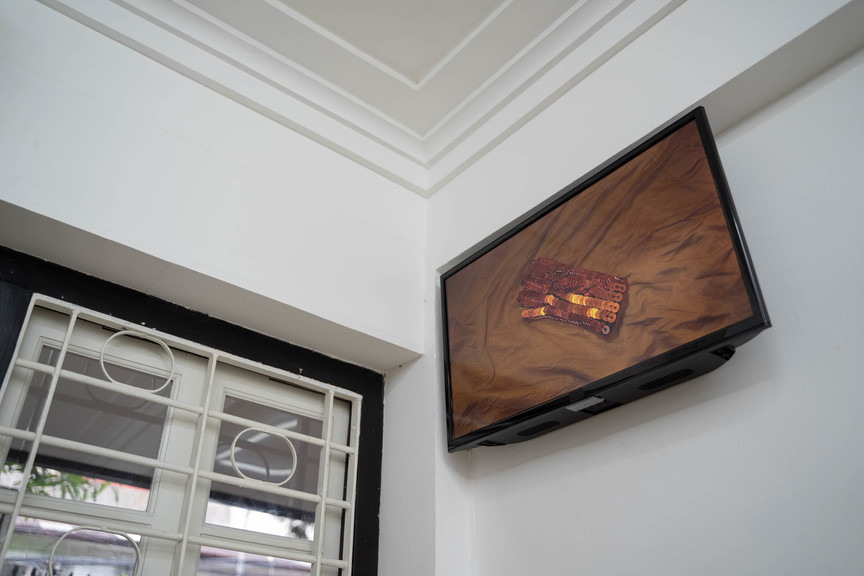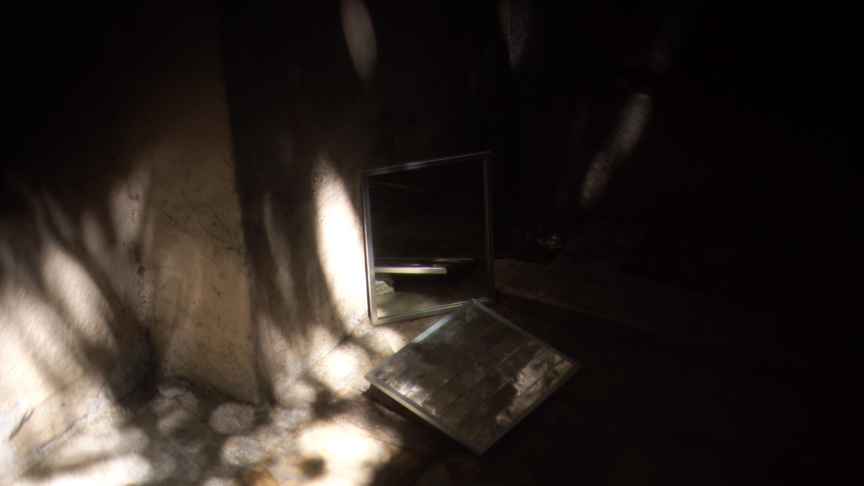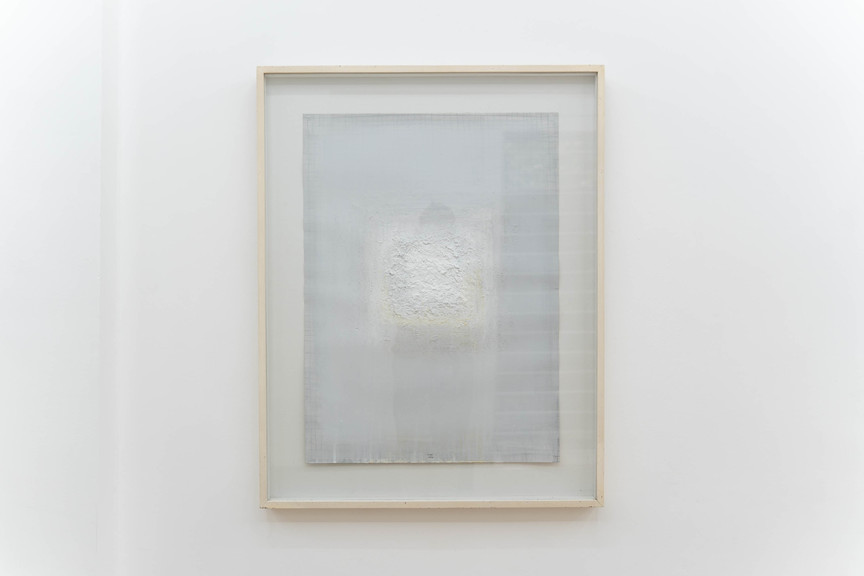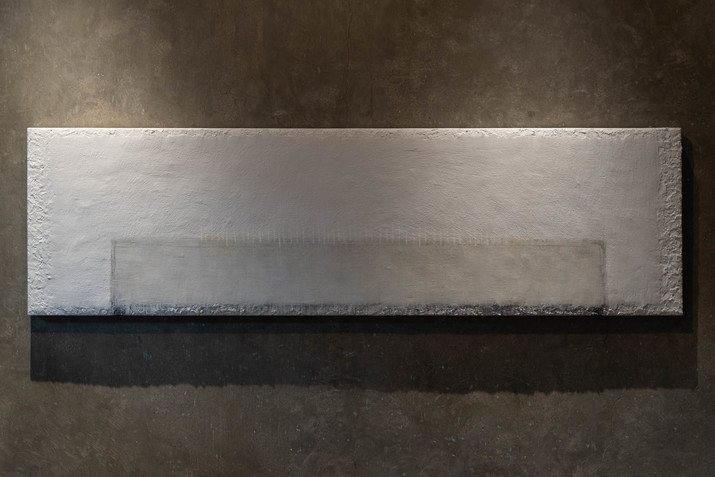-
From Current Issue
-
- Editor’s Letter Fire in the Heart
- Reviews I Gusti Ayu Kadek Murniasih
- Reviews 11th Seoul Mediacity Biennale: “One Escape at a Time”
- Dispatch Networked China
- One on One Monira Al Qadiri on Yukio Mishima
- Essays The rise of independent art spaces in pandemic-era Shanghai
- Features Tuan Andrew Nguyen
- Table of Contents
- Web Exclusives
- Archive
- Subscribe

R
E
V N
E
X
T
Installation view of LESLEY-ANNE CAO and LAO LIANBEN’s “More Light Than Heat,” at Calle Wright, Manila, 2019. All photos by JL Javier; courtesy Calle Wright.
Pairing works by emerging artist Lesley-Anne Cao and established painter Lao Lianben, “More Light Than Heat” focused on the idea of quiet passion, exemplified, as curator Arianna Mercado states, in the artists’ longstanding conceptual explorations of visibility and transience. Despite their subdued aesthetics, the projects, taken together, are poignant reflections of the understated yet no less potent devotion of two artists to their chosen artistic subjects.
Silent videos from Cao’s A vitrine, then a window series (all 2019) were dispersed throughout the space. Tender machine, of a glinting metal gauntlet that the artist had created out of five-centavo coins, was imperceptibly tucked away on the ground floor at the upper edge of a wall. The usage of this currency—of little monetary worth today—instigates a transformation of its material form into an art object, imbuing it with renewed value. In a small back room, another silent video titled Golds shows a hand flipping through a gold-paper-covered book to reveal photos of incongruous gold objects and jewelry, as if the album is a catalogue of a treasured collection. In these videos, Cao seems to muse on the intrinsic and incorruptible value of material objects in spite of changes in form.
Silver rectangle, filmed in the garden at Calle Wright, depicts a board of silver sheets along with a mirror that eventually topples over onto the concrete. As the objects themselves were absent from the exhibition space, the video lends these items the spatiotemporal quality of being both there and nowhere. Meanwhile, in A neck or a wrist, Cao is seen tracing the perimeter of the art house with a roll of gold cord normally reserved for making necklaces and bracelets. Whereas jewelry is tailored for specific body parts, Cao’s use of the cord to outline the site repurposes the metal, scaling it up into an accessory for the house. Here, Cao reflects on the notions of presence and absence in the context of the gallery, as well as the ways in which we define space, scale, and materiality vis-à-vis each other.
As Cao contemplates materiality, Lao examines the rendering of the intangible as substance. In the lobby, Lao’s works in acrylic and modeling paste on paper, Piece of light (1997) and Light (Night) (1999), respectively portray a textured mass of white on gray, and a window-like block of white on black. Lao’s monochromatic paintings appear to translate the atmospheric conditions of light and dark into three-dimensional textures.
Lao’s large acrylic and gel canvas on the second floor, Buddhist Table (2018), portrays an abstracted gray tabletop. Mounted above a large wooden table that came with the house, Lao’s painting manifests a stillness found in actual ordinary objects. Hidden inside a large open drawer in a cabinet beside the table, the painting Under the influence (2011) features a black circle created with the gestural stroke of a thick brush against a white background. This motif is an enso, the Zen-Buddhist symbol of the true self, drawing a parallel between Lao’s quiet artistic fixation and spiritual practice. Through these paintings, Lao distils complex energies into simple material forms, implying that one may better parse abstract concepts by manifesting them as visible elements.
Although working in different mediums, both artists share a characteristic muteness in their artworks, which was emphasized in the placement of the pieces in the gallery’s periphery, such as the edges of walls, on the floors, or cloistered in discreet corners. Such purposeful engagement with the architecture highlighted a sense of introspection, of eschewing the spotlight in favor of grounding one’s self. Enlightenment is a quiet, personal process, as “More Light Than Heat” gracefully espoused.
“More Light Than Heat” is on view at Calle Wright, Manila, until November 29, 2019.
To read more of ArtAsiaPacific’s articles, visit our Digital Library.


















